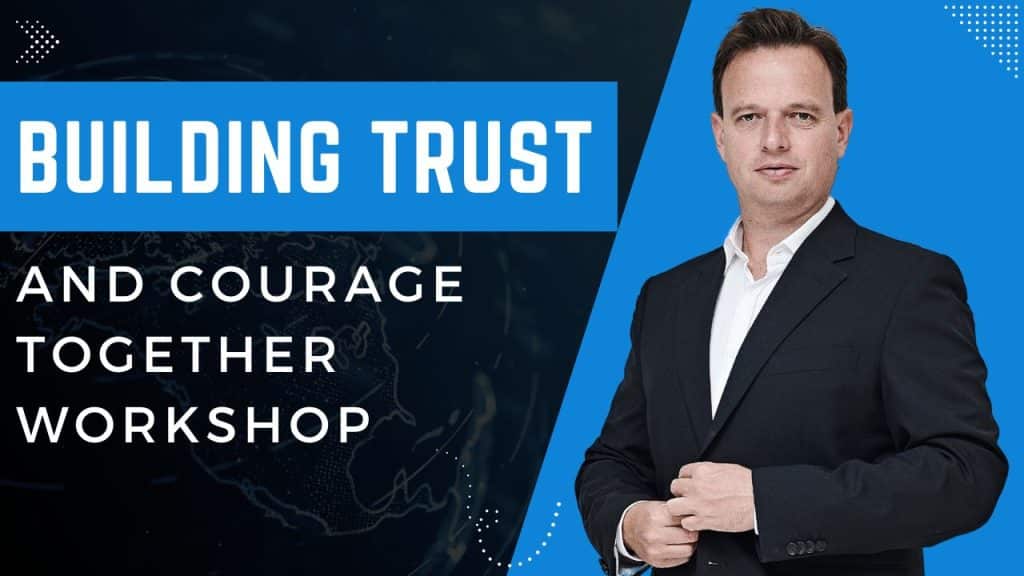
Most teams talk about trust.
Not many teams actually build it.
That's because trust isn't one big moment or decision. It's a collection of small, repeated behaviours.
And most people don't know how to spot them.
Or practise them.
That's what this workshop does.
It's based on Brené Brown's work—not the big, motivational stuff, but the practical, everyday actions that make a difference.
Things like:
Saying no clearly.
Owning mistakes without panic.
Listening without jumping in to fix.
These aren't soft skills. They're the ones that hold teams together when things get messy.
And most people don't get taught how to do them.
This workshop gives teams a safe space to practise. Not in theory, but through real scenarios and honest conversations.
You won't leave with a bunch of slides or lofty ideals.
You'll leave with clarity on where your team is getting stuck, and the habits that can actually help.
What Participants Will Walk Away With
By attending this workshop, participants get:
- A clear understanding of what trust actually looks like in day-to-day work.
- A simple framework (BRAVING) for building stronger, more respectful relationships.
- Practice having honest conversations without damaging trust.
- Personal insight into habits that protect you—but also get in your way.
- A shared team vocabulary to talk about boundaries, accountability, and integrity.
Let's get into it…
Building Trust and Courage Together
Duration: 2 hours
Purpose: Help team members grow in self-awareness, build trust, and practise courageous communication.
Workshop Objectives
- Increase self-awareness around behaviours that build or block trust
- Understand and apply the BRAVING framework in team interactions
- Practise giving and receiving honest, respectful feedback
- Build confidence in having courageous, values-driven conversations
- Commit to personal actions that strengthen trust and connection in the team
Materials Needed
- Flipchart or whiteboard
- Markers
- Sticky notes
- Printed copies of the BRAVING acronym (1 per person)
- Timer or phone stopwatch
- Name badges (if group members don't know each other well)
Workshop Plan
Welcome and Warm-Up (15 min)
- Briefly explain Brené Brown's message:
- Clear is kind. Trust is built in small moments. Vulnerability is courage in action."
- Ask:
- "What does courage look like in our team right now?"
- Let 2–3 people share briefly.
Self-Reflection: Your Leadership Armour (20 min)
- Explain the idea of armoured vs. daring leadership.
- "We all put on armour—perfectionism, control, hiding emotion—to protect ourselves."
- Ask everyone to reflect silently:
- "What's one piece of armour I tend to wear at work?"
- Share in pairs. Then invite a few volunteers to share with the whole group.
BRAVING Trust Check (30 min)
- Introduce the BRAVING acronym.
- In pairs, ask:
- "Which element of BRAVING do I find easiest?"
- "Which do I struggle with most—and why?"
- Debrief as a group:
- "What patterns are we noticing?"
- "What does our team do well?"
- "Where do we need to grow?"
Practising Courageous Conversations (30 min)
- Share the phrase: "Clear is kind. Unclear is unkind."
- In trios, roleplay this scenario:
- "You need to give a teammate honest feedback about something difficult."
- Each person takes turns as:
- Feedback giver
- Feedback receiver
- Observer (shares what worked well)
- Rotate after 5–7 mins. Then debrief:
- "What felt challenging?"
- "What helped you stay grounded and kind?"
Commitments and Close (25 min)
- Ask each person to write down:
- One thing they'll stop doing (a piece of armour)
- One thing they'll start doing to build trust or show courage
- Go around the group and share (if comfortable).
- Wrap up with this question:
- "What would change if we practised this every week?"
Conclusion
Most teams don't need another motivational talk.
They need space to practise the things that actually build trust—like saying no clearly, owning mistakes without panic, or just listening without jumping in to fix.
That's what this workshop is for.
It doesn't promise instant change, but it creates the conditions for it: clarity, reflection, and a bit of discomfort in a safe space.
And that's usually where better conversations begin.
If your team is struggling with unspoken tension, unclear expectations, or a general sense that something's off but no one's naming it—this is a good place to start.
Quiet, grounded, and practical.
No big breakthroughs required. Just small shifts, practised often.
See you next week.

